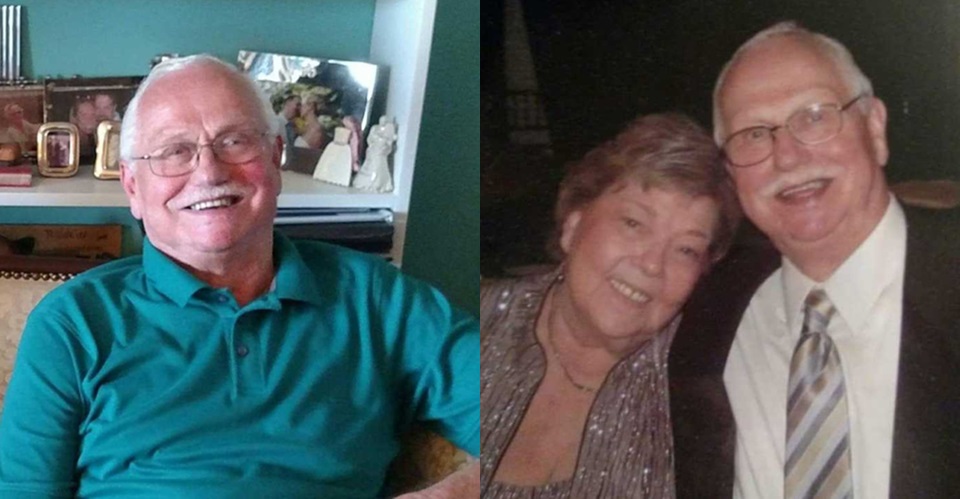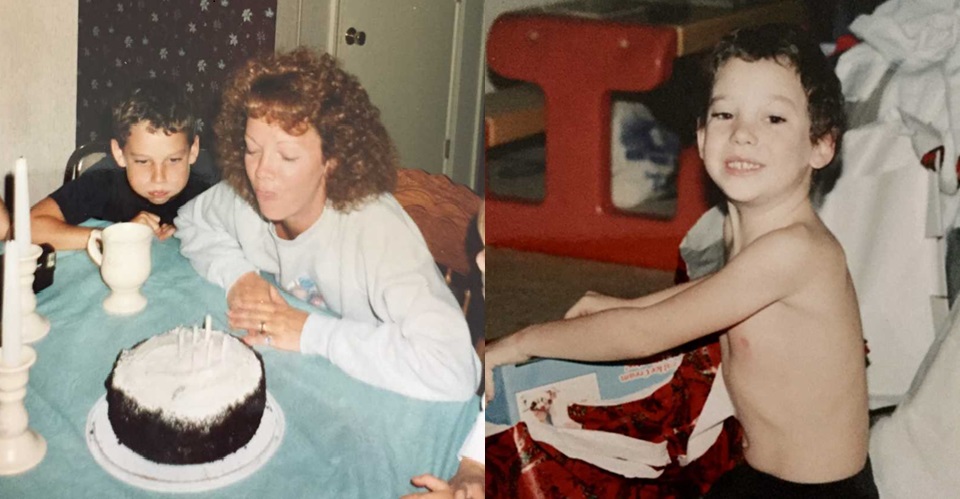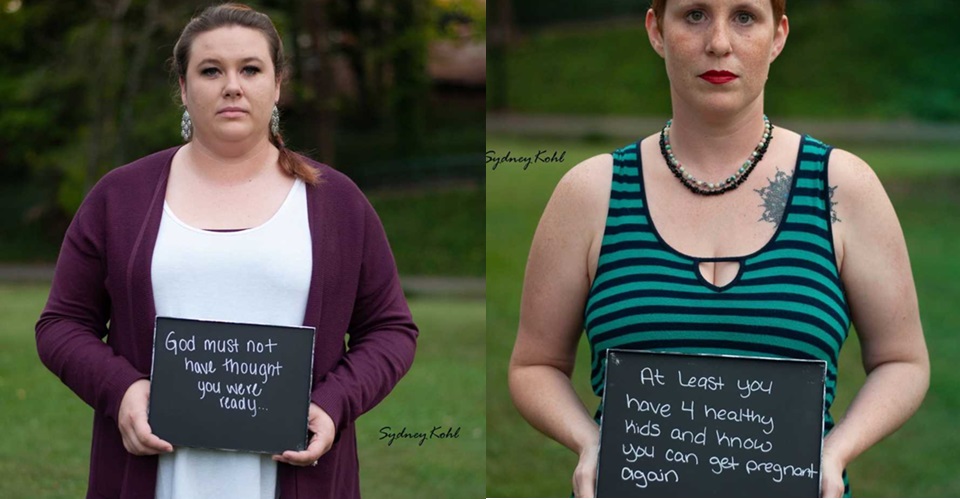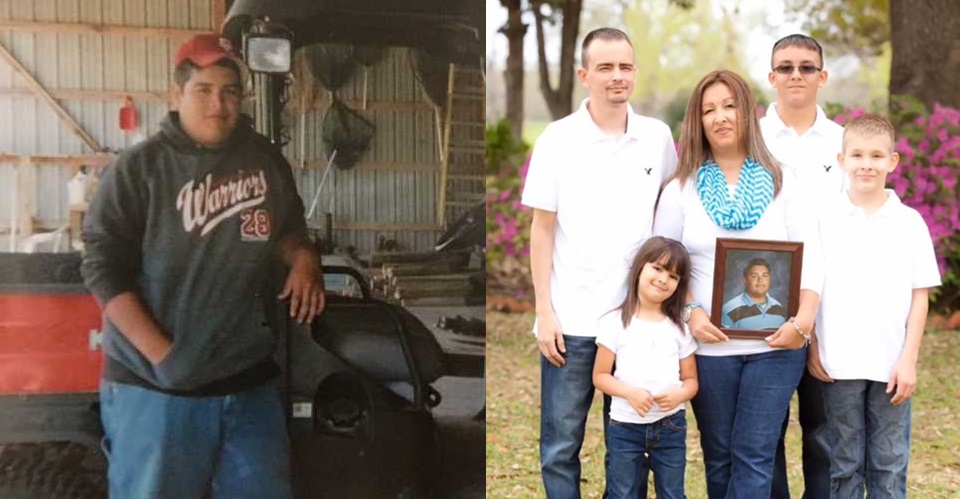When Julie’s father was diagnosed with Alzheimer’s in 2017, her world shifted. The news came only a year after her mother’s sudden passing, and she promised herself she would not let life or busyness steal time away again. She had missed too many moments with her mom and wasn’t about to miss these last ones with her dad.
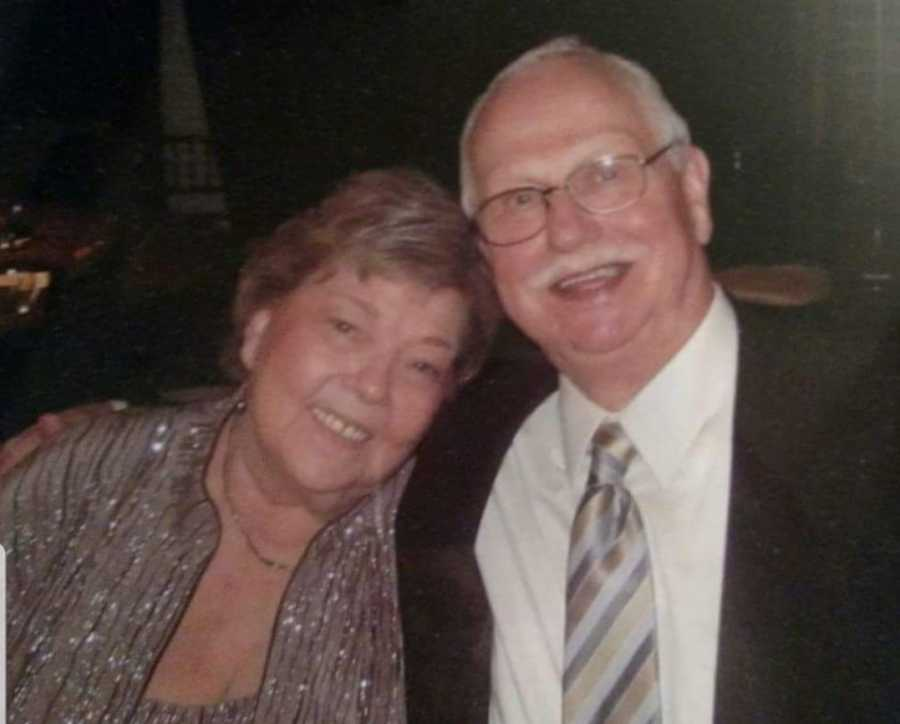
She packed up her life with her two children, Carlee and Brantlee, and moved in with him. The house filled with laughter, responsibility, and the quiet weight of what would come. Her father, once the life of every room, was still the same man who could make a stranger feel like family. Someone once said he was like Norm from Cheers — the guy everyone knew, everyone loved.
But Alzheimer’s has a way of taking pieces of a person slowly. It started with the car keys. Taking them away broke him, because it wasn’t just keys, it was freedom. Then came the small tasks — mowing the lawn, handling his pills — little things that made him feel useful. Julie had to step in, even when her heart twisted watching him lose independence. She researched late into the night and learned what so many caregivers know, that people with Alzheimer’s thrive on routine, and when it’s disrupted, emotions run high.
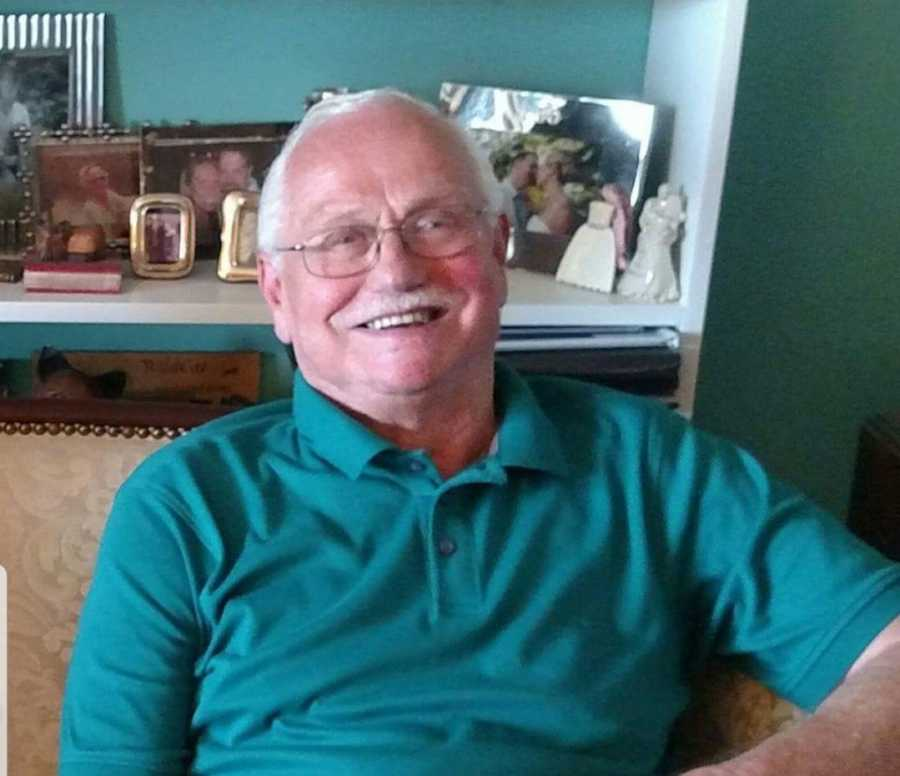
One routine became sacred. Monday mornings meant the arrival of Harold, the garbage man. For Julie’s father, Harold wasn’t just a man in a uniform; he was a friend. He’d say, “I’m going to see my friend Harold,” with a spark of joy that was rare these days. Julie would walk with him, and she’d spy from the window. Harold wasn’t an ordinary garbage man either; neighbors said he went out of his way for people. He’d haul cans back to garages or even knock on doors if families forgot to take theirs out. Small kindnesses, but they mattered.
One morning stands out in Julie’s heart like it happened yesterday. She was sitting on the porch, exhausted and emotional from the night before. Her father, fragile but determined, shuffled toward the driveway as the truck rumbled closer. Julie stepped inside quickly to wipe her tears, hoping he wouldn’t notice. When she came back out, he was fumbling in the garage, looking for a chair.
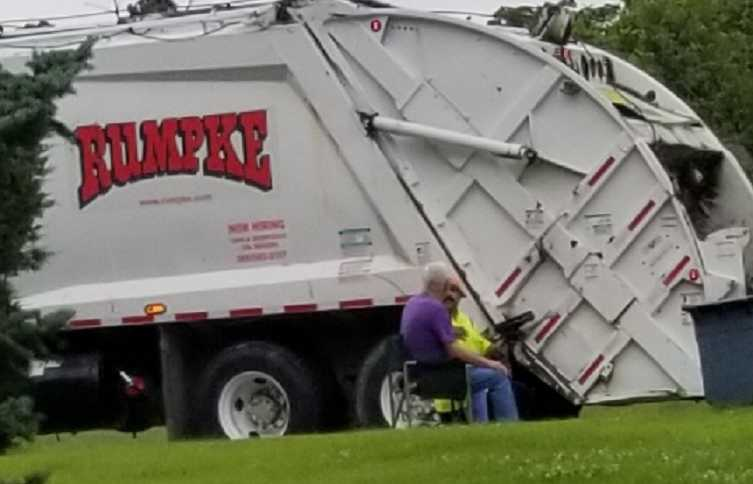
“I’ll get it,” she told him, carrying the chair to the curb. He explained softly, “Harold is my friend. He’s religious, and I’d like a moment to pray for you with him.” Julie’s throat tightened. She nodded, setting the chair down. Then she stepped back, giving them space, tears already threatening. She thought no disease could take away her father’s love for her. Alzheimer’s might steal his memory, but not his heart.
She turned toward the porch, trying to compose herself, but when she glanced back, she froze. There was Harold, a man who barely knew their family, kneeling on the ground beside her father, heads bowed in prayer. The sight broke her open. She cried, not the pretty kind of crying, but the messy, raw, soul-deep kind.
In that moment, a stranger became so much more. Harold didn’t know their history, didn’t know her private struggles, but he cared enough to kneel on the concrete and pray with her father for her. It was the kind of kindness you can’t put into words, the kind that humbles you. Julie snapped a picture through blurry tears, desperate to capture something so pure. When she shared the photo online, the response was overwhelming. Thousands of people saw it, shared it, and felt the ripple of Harold’s quiet act of love. What struck Julie most was the reminder that goodness is still alive in this world, sometimes disguised as a garbage man who takes an extra minute at the curb.
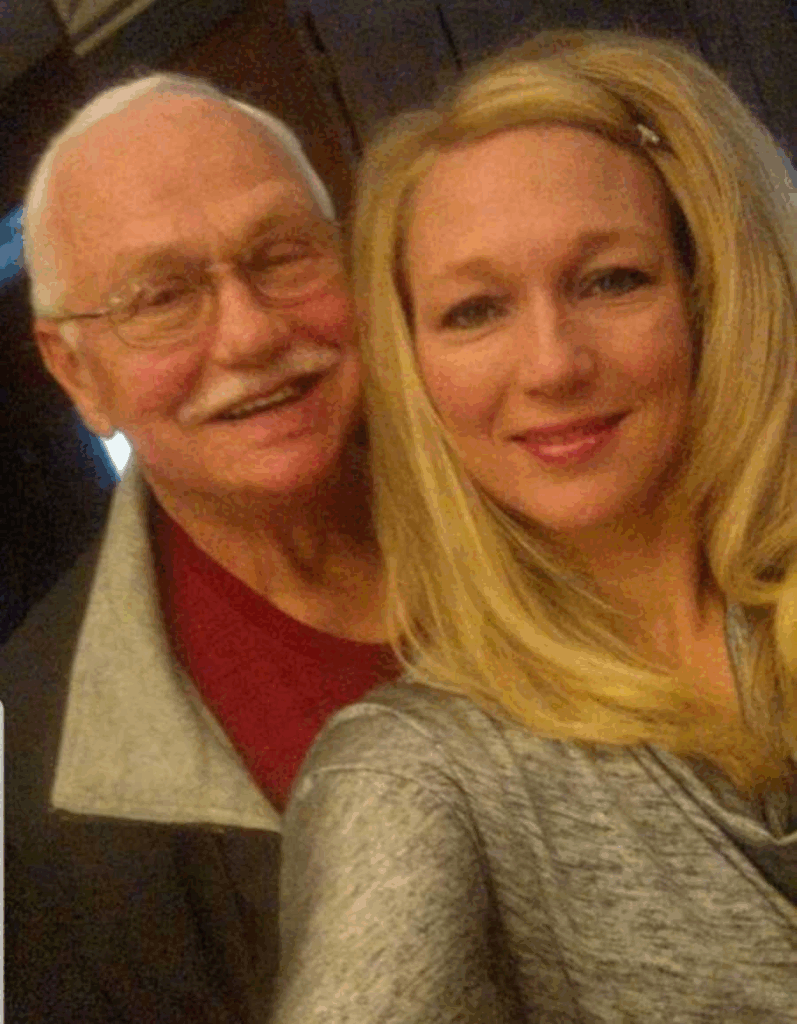
Her father’s Alzheimer’s continues to bring hard days, but that memory stays bright. For Julie, it’s proof that small gestures can carry enormous weight. Harold’s prayer, her father’s unwavering love, the reminder that even as memories fade, compassion lingers. It’s something she will never forget. Sometimes, the most extraordinary angels wear work gloves, drive garbage trucks, and stop everything just to kneel beside a friend.
